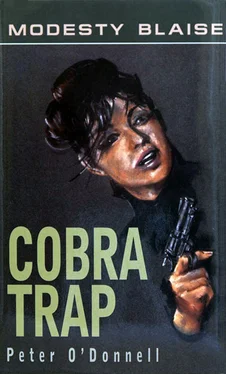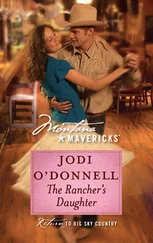She studied him curiously. "They don't make too many like you these days. What's your name and where did you spring from?"
"I'm stayin' down the road a piece at a little pub place, and I just took a walk. My friends call me Gus."
She watched the two men wade miserably from the pond, void of aggression now, avoiding her eye. Then she took the old American's arm and walked him to her car. "All right, Gus," she said, "I’ll see you home."
Fifteen minutes later they were sitting together at a low table in a corner of the lounge in a three hundred year old hostelry. The table was set for three with a plate of scones, jam and cream, and a pot of tea. Danny, now trapped in his role of butler, sat looking dignified and was not presuming to join in the conversation. Modesty, amused by the setup and intrigued by her new friend, was pouring tea and saying, "Well, you're a long way from home, Gus."
He nodded. "Yup. They run these here package tours, so I come across for a few weeks." He took the cup she passed him, thanked her, and put several knobs of sugar in it, stirring as he said, "My folks was from this village around a couple a hundred years back, so 1 figured spending a day or two here, seein' if I could find any of 'em in the churchyard or the register thing. Where you from, Miss Modesty?"
"Oh, nowhere special. What do you do back home, Gus? Or maybe you're retired?"
"No, I got a general store." He frowned with a touch of embarrassment. "Everybody's gotta come from somewhere, but maybe you reckoned I was nosey, askin' you?"
She shook her head in friendly reassurance. "It's just that I don't know the answer. I think my folks may have been refugees who didn't make it, but the first thing I can remember is wandering through the Middle East on my own."
He had picked up his cup, but now he set it down and looked at her wonderingly. "How old?"
"Seven, eight maybe. Everything before that seems to have disappeared."
"And you was on your own? Just roamin' about?"
"I was on my own at first. Then I met an old man in a Displaced Persons campwell, he seemed old to me then but he was probably under fifty. He'd been a professor in Budapest until he had to run for his life. He knew just everything."
"And he looked after you?"
She smiled. "No, I looked after him, Gus. He knew everything, but he was hopeless in my kind of world, so I had to fight for us and steal food and do whatever had to be done. I never knew his real name, I just called him Lob. Anyway, that's where I come from."
"But… where d'you go from there, Miss Modesty?"
"Well, we roamed all over the Middle East and North Africa, and he was my teacher. He gave me my name, and I loved him. When I was about sixteen he died one day in the desert. I buried him, and cried, and went on alone. What came next is much too long to tell, Gus."
He sat staring down at the table, his tea untouched, not meeting her eye, and she had the strange impression that he was struggling with a feeling of shame. At last he said in a low voice, "I jest can't figure how a kid girl could get by all those years."
She wanted no sympathy for what had been, and said, "Hey, lighten up, I didn't tell you to make you feel bad. You've lived rough yourself, haven't you?"
He seemed to take hold of himself, and grinned. "Yup. Plenty. Was twice I sure enough nearly didn't git back alive when I was a young feller prospecting. But I warn't a kid girl."
"It's the same for anyone. As long as you don't starve and don't die of exposure you get by."
"Sure. But there's more'n being hungry or gitting froze. There's people. Bad people."
She had no intention of telling about the occasions of horror she had gone through, and said, "What did you do about people like that when you were a young feller?"
"Me? Well, I ain't big but I used to be real sneaky. I'd kick 'em in the belly, then stomp 'em."
"I thought it would be something like that. I used to run until I got big enough and sneaky enough to do it your way."
"That figures. Ain't no wonder you give them fancypants a surprise just now." He sighed, turned his head to look at her directly, and said with curious formality, "It's been a real pleasure meetin' you, Miss Modesty. A real pleasure."
She dipped her head. "Thank you, Gus. I've enjoyed it too, so if you come up to London give me a call." She turned to Danny Chavasse. "Give the gentleman my address and number before we go, Blenkinsop."
Danny nodded gravely. "Certainly, madam."
* * *
Two men and a woman sat at a boardroom table in the City of London. There was no secretary to take minutes. The woman was Harriet Welling, fortyeight years old, director of three large companies and committee member of several charities. She wore a neat suit, had a round face and forgettable features, an appearance that belied her character, for she had risen from pool typist to become a figure of substance in the City.
There was silence in the room as all three sat reading copies of the same report. First to finish was George Sumner, a lean, eaglefaced man, a brigadier who had been among those axed from one of the county regiments during the last slimming down of the armed forces. He got up, moved to feed his copy of the report into the shredder, then resumed his seat, and said, "In my view The Dark Angels are getting too damn theatrical. What's the point of all these acrobatics? They just have to kill someone. Don't have to carry on like—who is it?—Batman or somebody."
The second man, Timmins, was heavily built, squarejawed and with thinning black hair sleeked back from a wide brow. He said, "You miss the point, Sumner. The theatricality of The Dark Angels is essential to their success. It's essential to them, because that is their common character. I'm sure your brigade had a character that you created and which caused it to operate in a particular way—y our way, and therefore in some degree different from the way another brigade would operate. The Dark Angels are the elite among the executive groups we employ, and we interfere with their methods at our peril."
Sumner sat gazing into space for perhaps half a minute, then nodded and said abruptly, "Point taken." He looked towards the woman, who had laid down her report. "Your view, Mrs Welling?"
Harriet Welling always spoke slowly but without hesitation, her voice cool and amiable. She said, "I agree they're theatrical, Brigadier, but if we use psychopaths we have to accept psychopathic behaviour. The Dark Angels revel in their role. To them it's godlike. When they operate, not only does nobody know who was responsible, nobody even knows there's been a killing, because the Angels create perfect accidents," she tapped the report in front of her, "as they did for Kaltchas. What's more, although one hundred per cent successful, they're content to remain anonymous, which is greatly to our advantage. Most assassin groups give themselves a name and publicise it. That's the last thing we want if we're to be effective."
Timmins said, Thank you, Mrs Welling. We must also take on board the fact that, unlike lesser contractors we hire, The Dark Angels know our identity." He glanced at the other man. "That was inevitable since it was Sumner who had to select them from army records and arrange covert training. My point is that, given their particular mentality, it would be unwise and bad security to subject them to needless criticism. Their work for us has been impeccable. Let us not disturb the relationship in any way."
Sumner nodded briskly. "Agreed," he said. "I recall anxious moments during the van Doom business, when other contractors failed twice and we had finally to bring in The Dark Angels. It's just…" he paused with a wry smile, "it's just that they are so damn theatrical, and with my own training that sets my teeth on edge. But you've provided convincing reasons why I should put up with it, so I won't raise the matter again."
Читать дальше












